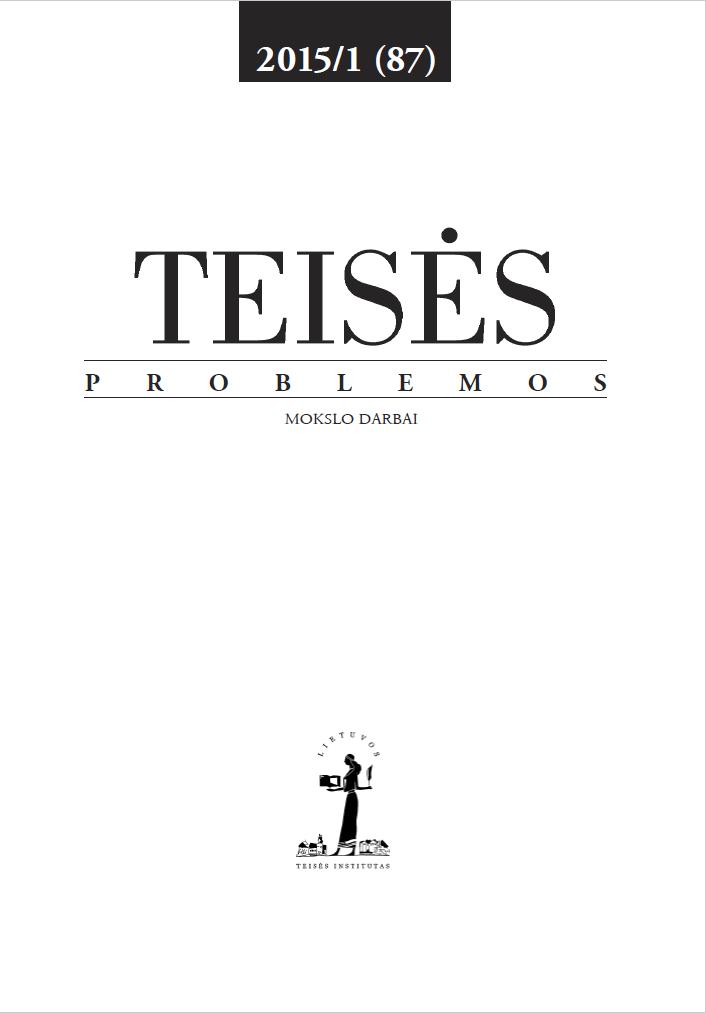Viešasis interesas ir teisėti lūkesčiai politinių partijų finansavime: bendrieji ir specifiniai aspektai
The Public Interest and Legitimate Expectations in the Financing of Political Parties: General and Specific Aspects
Author(s): Egidijus ŠileikisSubject(s): Law, Constitution, Jurisprudence, Electoral systems
Published by: Lietuvos teisės institutas
Summary/Abstract: The topics of the identification and balance of the public interest and legitimate expectations may be analysed and continuously updated in various law-making areas, including the regulation of the financing of political parties. This area of the legal system of the Republic of Lithuania is characterised by unusually dynamic development and its change, in particular, by the elimination of donations, which were considered to be legal for many years, from legal persons to political parties and their election campaigns; innovative instrumentalisation of the allocation of the fixed percentage share, i. e. 1 percent, of the personal income tax to a political party (at the taxpayer’s choice) (at the expense of the interests of the other hitherto only beneficiaries of this part of the tax, e. g., schools); the legitimation of the allocation of the so-called small donations (not exceeding LTL 40, or EUR 12 as from 1 January 2015) from natural persons to a political party’s election campaign (by calling a special telephone number); a limitation on part of political parties’ election campaign expenditure in television (“in election campaigning videos that are longer than 30 seconds”), i.e. the imposition of the maximum percentage share, which is not more than the level of 50 percent of the maximum allowed campaign expenditure; a particularly doubtful application of reimbursement for part of campaign expenditure incurred by certain political parties in the 2008 election to the Seimas (by allocating LTL 4 million for that) during the economic crisis in 2010 when old-age pensions and the remuneration of state servants and officials were reduced, and the subsequently consolidated removal of such an instrument for reimbursement; a tendency towards increasing the annual state budget appropriation to political parties in recent years; the emergence of the consequences of the distribution of the said appropriation among 6–9 political parties (exceptions to the rules on public procurement), i. e. the consolidation of the privilege of certain political parties, the activities of which are (become) more than 50 percent financed from the state budget, not to follow public procurement procedures (as of 1 January 2014, only when buying certain advertising services). The striving for the transparency and sustainability of the financing of political parties, which takes the form in the above-mentioned and other aspects, may be subject to an ambiguous assessment namely in respect of the definition and harmonisation (typology) of the public interest and legitimate expectations. Therefore, it is important to link the general aspects of the concept of the public interest to the problematic aspects of the insights (conception) of legitimate expectations and their specific reflections in the regulation of the dual financing (by private and public funds) of political parties. It should be noted that the legitimate expectations of political parties, like analogous expectations of other persons, stem from the legal norms that are formulated with sufficient precision and from individual governing acts that are based on them, as well as from real opportunities to commence and a fortiori complete the procedure that is already pending in order to implement the rights consolidated in the said norms (among other things, in order to realise the right, acquired in accordance with election results, to participate in the distribution of the annual state budget appropriation).
Journal: Teisės problemos
- Issue Year: 2015
- Issue No: 87 (1)
- Page Range: 5-43
- Page Count: 39
- Language: Lithuanian

